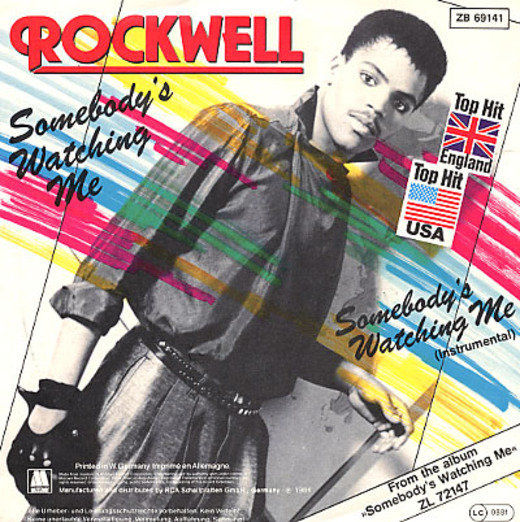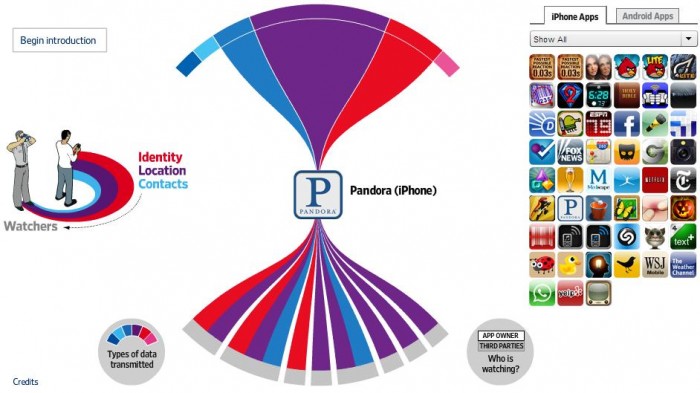A few weeks back I ordered two things from different online vendors, one for my brother and the other for my parents. I used an email address I rarely use, an account on which I only get a few spam messages a week. Naturally within hours I had received a months’ worth of junk email! One vendor was sending me messages directly advertising their own stuff … but aside from them I was getting tons of other sales messages. Some of those messages were related to the purchase I made from the other vendor and others were classic ‘wide-casting’ spam sales junk.
It was pretty clear to me – one site used my purchase data to target me for promotions from their own store and leverage my purchases to get me to buy more stuff. The other site used my purchase data to sell my info to a contact database so I could be either specifically or broadly targeted by people looking to sell stuff.
But make no mistake: both sites “used my purchase data”. And am I surprised? Absolutely not! So long as the internet has been commercially driven there have been people out there trying to figure out how to monetizing the hours you spend online.
Earlier this week the Wall Street Journal wrote a rather inflammatory article about how many applications are ‘watching’ you, by which I mean tracking what you do and using that information to make money for themselves by selling your information to others.
One of the specific apps they cited was the music streaming app Pandora. As they note in the article, when you use Pandora you are sending them your phone information along with specifics such as location, gender, age and other demographics. And specific to Pandora you are of course also sending along whatever song and playlist information got you to that particular bit of music.
Again, am I surprised that in exchange for the free use of Pandora (or even the paid version) and all of that licensed music you are exchanging some basic demographic information? Not in the least – heck it doesn’t even bother me in this particular case!
Which brings me to an article by Warner Crocker at GottaBeMobile, in which he basically calls the WSJ to the carpet for blowing things out of proportion and being out of touch with reality.
Maybe he didn’t exactly say it that way … in which case I’m editorializing! (Sorry Warner!)
The point is – how the heck is Facebook valued at 56 Billion when pretty much none of the 500 million individual users have EVER paid Facebook a dime? That is right – because you are looking at all of those ads they serve up, and enough people click on them that the advertisers pay Facebook millions of dollars to keep them streaming.
The same thing with the massive amount of data and information I trust to Google without ever having paid them anything. They are hoping I will click on the sponsored links, the links on the side, and for goodness sake just stop loading AdBlock on every computer that comes into the house!
But there is a bit more to the story …
In his conclusion Warner says “I’m not saying we shouldn’t be concerned about privacy and where our data goes”, which actually pretty well lines up with something from the WSJ article:
One iPhone app, Pumpkin Maker (a pumpkin-carving game), transmits location to an ad network without asking permission.
The WSJ article talks about iOS and Android apps, and the way each installs is very different. Taking Pandora again as an example: if I wanted to install on my Droid I would face a rather daunting screen that says ‘This application has access to the following:” with a list of services including some contextual information.
From my iPad if I wanted to install it I would see that it is rated 12+ based on the language I might hear in the music, but nothing else. There is no indication that when either of my sons use this app they are transmitting personal information.
The ability of underage kids to load and utilize apps which can then potentially make use of location data without ever asking user permission or making note of it is a definite concern. Why? Because of the potential for abuse, plain and simple. You set up a ‘special offer’ and you’ll be swamped by scammers. You set up a potential for privacy abuse, and it will happen – for commercial, technical, and more salacious reasons … but it WILL happen.
Personally I try to at least glance at the security info for every Android app I load, and in a couple of cases have seen trivial apps that wanted access to every service on my phone and I chose not to install them. For what they were doing, the access level made no sense. I like that option – and wish they had it for iOS apps.
The other reason to be aware is that it is clear that companies – with government regulator backing – are separating wireless space from the normal internet. This means that different rules will apply and the assumptions of privacy, security and information ownership will all change.
But while there are concerns, ultimately I agree with Warner’s main thesis: playing Chicken Little about apps and data as a general thing is of little value: people will either immediately remove all apps and go back to their old Nokia analog phone and hide from mobile data forever … OR, they will look at the WSJ article and feel their eyes rolling into the back of their heads after several thousand words and simply ignore the whole thing.
In neither case is it useful – we need to remember that safety and security is something we own. Just like our privacy and the government, if we choose to let these companies simply mine all of our data when we download a bubble level app without complaint, then we are implicitly saying that we give them permission to do so. And if we don’t agree, we need to use our voices to make sure they know what we think is acceptable and unacceptable.
It could be said that in this post-Wikileaks world we need to realize that any and all information about us can be had within minutes regardless of how private we think we are … but that doesn’t mean we should abdicate our responsibility to maintain our own private space in the world.
What do you think? Have we lost control of our personal data in exchange for ever more functionality in the new mobile world? Where are the boundaries? Have you ever chosen to not install an app you wanted because it was mining too much of your information?



I Always Feel Like … My Apps Are Watching Me! | Gear Diary http://bit.ly/gNb8M0